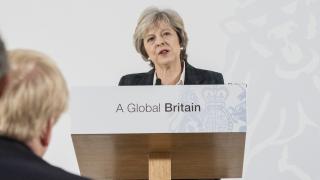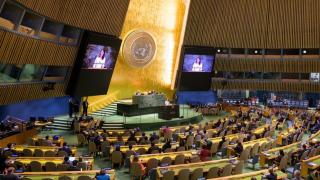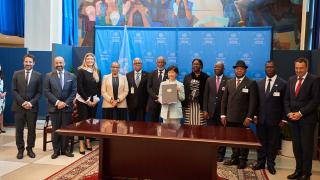
UNA-UK has prepared a short briefing on the UK's recent interactions with UN human rights experts.
What have UN rights experts said about structural racism in the UK?
On Friday April 27 a group of five UN human rights experts issued a statement expressing serious concerns over the deaths of a disproportionate number of people of African descent and of ethnic minorities in the United Kingdom as a result of excessive force by State security.
The statement echoes the findings of the Report of the Independent Review of Deaths and Serious Incidents in Police Custody, which was commissioned by UK Government after data disclosed by the Metropolitan Police in August 2017 found that people of African descent and of ethnic minority background were twice as likely to die after the use of force by police officers. The experts’ statement added that “the deaths reinforce the experiences of structural racism, over-policing and criminalisation of people of African descent and other minorities in the UK”.
The Government’s response to a letter the human rights experts previously sent acknowledges the issue and makes clear the UK’s intention to implement the recommendations in the Report of the Independent Review of Deaths and Serious Incidents in Police Custody.
Why is the Special Rapporteur on racism currently in the UK?
By coincidence, one of these five experts, E. Tendayi Achiume, Special Rapporteur on racism, is visiting the UK from 30 April to 11 May. This is a routine visit and had been scheduled in 2017, with the dates agreed in January 2018. The British Government has an open invitation to all UN Special Rapporteurs and will usually receive one or two such visits a year. On this occasion the Special Rapporteur has indicated that she is particularly keen to observe “structural forms of discrimination and exclusion that may have been exacerbated by Brexit.” Police figures show a surge in hate crimes involving racial and religious discrimination rate following the June 2016 referendum on the UK’s membership of the EU.
What are Special Rapporteurs?
Special Rapporteurs and Independent Experts (collectively known as Special Procedures Mandate Holders) are independent academics. They receive no payment from the United Nations, although the UN Office of the High Commissioner for Human Rights does provide them with some clerical support, and so need to find their own sources of funding and finance. They are appointed by the states on the UN Human Rights Council, who pass a resolution to create the post (or “mandate”) and take turns participating in the “Consultative Group: Nomination, Selection and Appointment of Mandate Holders” which appoints the individuals themselves. Currently there are 44 thematic and 12 country specific mandates.
The independence of the Special Procedures is both a strength and a weakness; it helps to protect them from the perception that any member state, or even the UN itself, is placing any undue influence upon them, but it means that on occasion they can suffer from insufficient resourcing, and their views do not always reflect the views of the human rights apparatus of the UN.
How are Special Rapporteurs treated by the UK Government?
On this occasion it would appear that UN Special Procedures are working to draw attention to a serious issue on which the Government recognises its actions as being insufficient.
However, on occasions in the recent past, the UK Government has been dismissive of the findings of Special Rapporteurs, with UK representatives resorting to undiplomatic language, including through personal attacks on Special Rapporteurs in relation to their country of origin, rather than the substance of the issue itself. UNA-UK has warned that such an approach can normalise a tactic which is then emulated by other nations with far more egregious records than the UK on human rights.
Natalie Samarasinghe, UNA-UK’s Executive Director, said:
“In the past, UN Special Rapporteurs visiting the UK have been subjected to highly personal attacks in the press and by politicians, even ministers. This conduct falls short of what we would expect from a country that champions UN human rights mechanisms. We hope that the debate during the visit of E. Tendayi Achiume will set an example to others in terms of respect for the work of Special Rapporteurs, and that politicians engage constructively with her findings and recommendations.”






